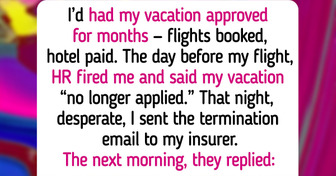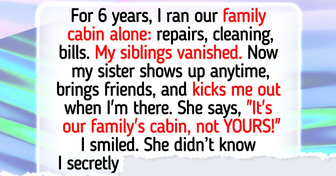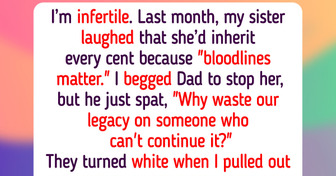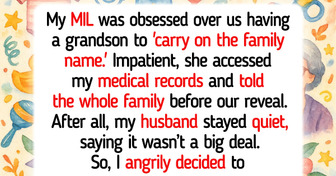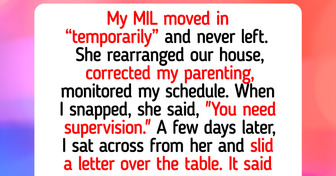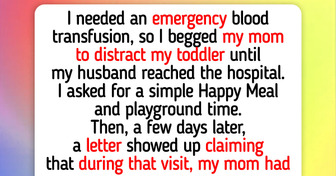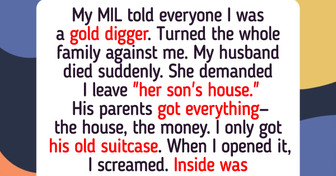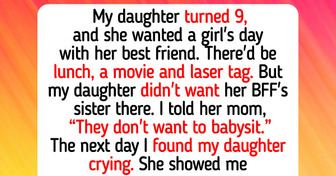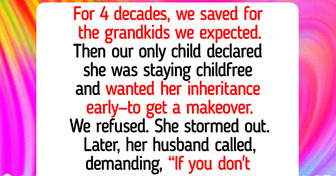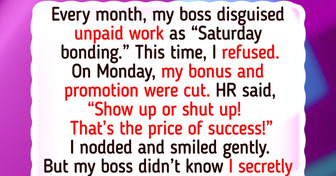My Stepmom Demands That I Give Up on My Dream So Her Daughter Can Go to College
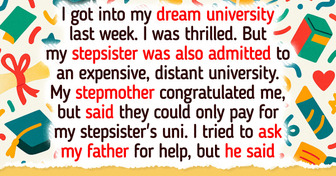
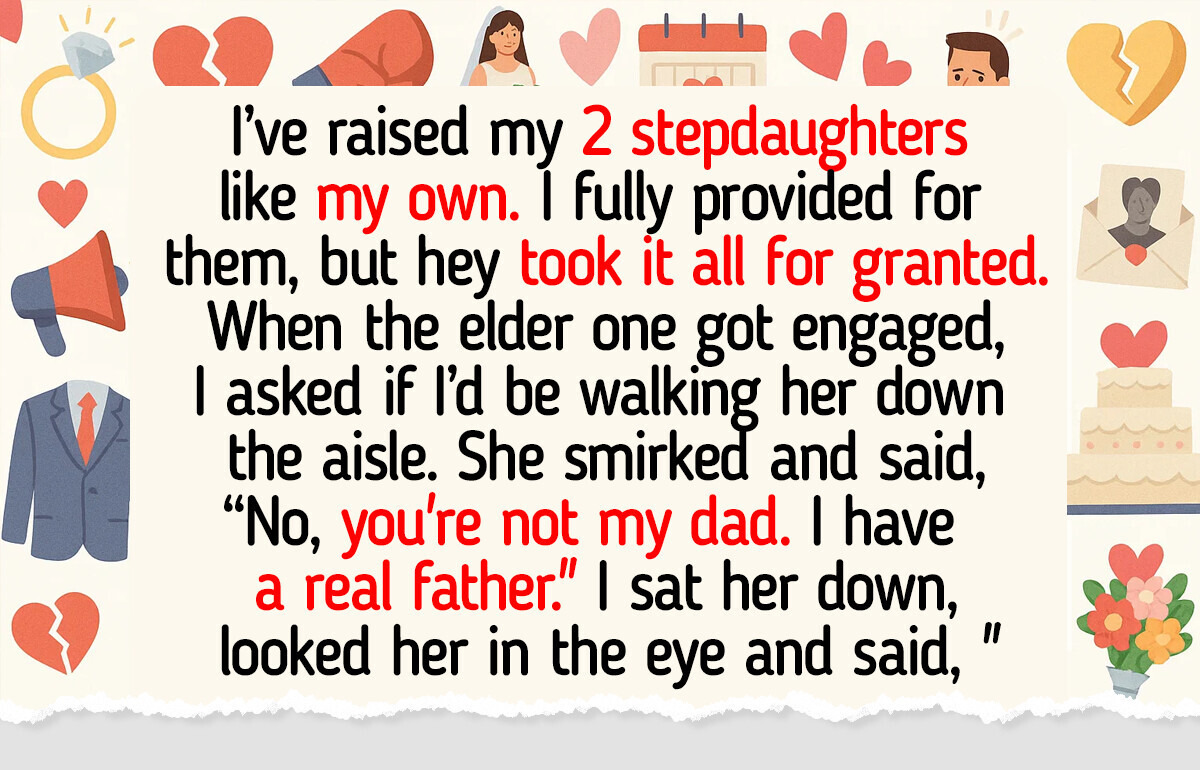
Every so often, a letter lands in our inbox that stops us in our tracks—not because it’s loud or dramatic, but because it speaks a quiet truth so many people carry in silence.
Daniel, 59, wrote to us not to complain or seek applause, but to share the emotional weight of loving two children who never quite let him in. For fifteen years, he was there, present, dependable, invisible in all the ways that hurt most. Then came a moment, raw and long overdue, when he finally said the one thing he’d held back for years.
What happened next? It wasn’t loud. But it was seismic.
Here’s Daniel’s story.
"Hi Bright Side,
I’m Daniel, 59, and I’ve never liked the term stepfather. I didn’t marry my wife thinking I’d be some half-parent to her two daughters. From day one, I treated them like my own. I paid for their braces, their soccer uniforms, and their summer camps. I was there for school drop-offs, doctor’s appointments, late-night talks about boys and college, and life.
I wasn’t trying to replace their father, who never even bought them an ice cream. I just filled the space he left behind.
But no matter how many years passed, they kept me at arm’s length. They always made it clear: I wasn’t really family. They’d thank me for the things I did, like I was a helpful neighbor, not a parent. Birthdays came and went without a single card that said “Dad.” I swallowed it, telling myself love was a long game. But then, last month, something snapped.
The older one, Sarah, was getting married. I’d already dropped over $12,000 for the venue deposit and catering. I asked, gently, if I’d be giving her away at the ceremony. She smirked and said, “Oh... uh, no. I thought it will be my real dad. I mean, no offense — it just wouldn’t feel right.”
The younger one, Mia, had just been accepted to a pricey out-of-state university. She texted me a link to the tuition portal. No greeting, no thanks — just: “Due July 1st.” That was the night I stopped being a blank check.
I sat them down, looked them in the eye, and said, “I’ve loved you like you were mine. Not for a year, not five — fifteen. But love without respect isn’t a relationship. It’s a transaction. And I’m done making deposits into somebody who never sees me as part of the family.”
They looked stunned. Like the ATM just spoke. “Sarah, you want your ‘real dad’ to walk you down the aisle? That’s your choice. But he can also help with the rest of the wedding bills. And Mia, you’ll need to call your ‘real dad’ for tuition help too. I’m done financing my own rejection.”
It was quiet. The kind of quiet that sinks in when someone stops enabling the comfortable lie you’ve been living.
They were angry at first. Accused me of being petty. Cold. But a week later, Sarah showed up at my door — no makeup, no pride, just tears. “I didn’t get it before,” she said. “But now I do. You were always there. And we acted like you were optional.” I didn’t say “I told you so.” I just opened the door and hugged her like I always had.
But now, I do have this bitter aftertaste that cannot be erased by their sudden enlightenment towards me. Did I go too far in making them feel sorry in such a rude way? Does this relationship have a chance now?"
Dear Daniel, Thank you for sharing such a raw and heartfelt story with us. Your words echo the quiet heartbreak of many who give selflessly, only to feel invisible in return. We see your pain—and your strength. That moment of speaking your truth wasn’t about vengeance—it was about boundaries. And that’s not cruelty; that’s self-respect. As you work through the emotional aftermath, here are some psychological strategies to help you move forward:
It’s natural to feel bitterness, sadness, and even guilt. But emotions don’t have to dictate your next move—they’re indicators, not orders. What you feel reveals unmet needs and values. Give yourself space to process without judgment.
You didn’t go too far—you set a boundary after years of being emotionally sidelined. That’s not rude; that’s real. Speak to yourself with the same compassion you’ve extended to those girls for years.
True relational healing begins only after honesty. You gave them the truth, and that created the space for change. Their return—especially Sarah’s—shows that your boundary prompted reflection, not just resistance.
Your worth is not tied to what you pay for, but to who you are. When people start valuing you only for what you give, love gets replaced by obligation. Keep showing up with love—but not at the cost of self-erasure.
Daniel, it’s not about whether you went too far—it’s about whether you finally went far enough to protect your own heart.
This relationship absolutely has a chance now. But it must evolve into one where love flows both ways—with respect, recognition, and reciprocity.
You are more than enough, exactly as you are.
Warmly,
Bright Side
And here’s an emotional letter from Sam, a 35-year-old father, whose daughter preferred her mom’s new boyfriend over him, and it shattered his fatherly heart. The man is in despair and he shared his story with us in order to get a piece of advice about how to behave with his own child, whjo seems to love a stranger more than her own dad.

